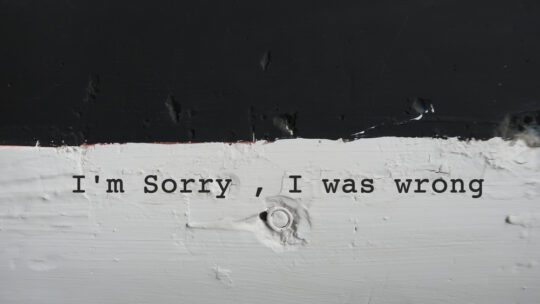
Smartphones are powerful. They turn bystanders into instant journalists. And like the COVID-era “Karen” videos, social media amplifies every misstep they record. Consequently, high-profile individuals and even us regular folks must act as if we are always on camera.
One viral moment can destroy a reputation overnight. And that reality played out at the U.S. Open on Aug. 29, 2025, when Polish CEO Piotr Szczerek snatched an autographed hat meant for a young fan from tennis star Kamil Majchrzak. The boy was left heartbroken; the internet was outraged.
Even though few actually know the people involved, crises like this are always deeply personal. They ripple through businesses, eroding stakeholder trust, lowering employee morale and damaging the bottom line. Szczerek, the millionaire co-founder of Drogbruk, was hammered online. He was called the “most hated man on the internet,” with calls for boycotts and even scathing reviews on workplace platforms questioning his ethics.
At first, there was silence. And when you fail to speak, others will speak for you. That silence created a vacuum filled by memes, mockery and misinformation. But on September 1, Szczerek finally broke it, posting a statement in which he took “full responsibility,” admitted his actions showed “extremely poor judgment,” and offered a direct apology to Brock, Majchrzak and the broader tennis community. He returned the hat and acknowledged the incident as, in his words, a “necessary lesson in humility.”
The Optics of Defense
One of the cardinal rules in crisis communications is to avoid defensiveness. The video was clear: Szczerek intercepted a hat tossed by Majchrzak to a young fan named Brock, tucked it into his wife’s bag and ignored the boy’s protests. Attempting to justify it as being caught up “in the heat of the moment” would have risked sounding hollow, especially since Majchrzak himself stepped in to make amends by meeting with Brock and gifting him a signed cap and other keepsakes.
To his credit, Szczerek avoided excuses in his apology and took ownership. That is the foundation of recovery. Still, issuing a statement is only the beginning.
Crafting the Apology
Apologizing effectively requires authenticity, timeliness and action. Szczerek’s public acknowledgment checked the first box and began to repair the damage. But done poorly, even a genuine statement can result in lost partnerships and a damaged reputation. Done right, it can humanize and even shift toward a redemption story.
An effective apology should continue to emphasize:
- Acknowledgement: Name the specific harm, as he did by admitting his behavior was impulsive and hurtful.
- Remorse: Go beyond embarrassment and express sincere empathy for the young fan and his family.
- Responsibility: Keep repeating that this was entirely his mistake.
- Corrective Actions: Pair words with deeds that show commitment. For example, inviting Brock to a future event or ensuring young fans feel honored, not slighted.
- Forward-Looking Values: Reaffirm his support for youth sports and community programs in a lasting way.
His initial apology began this process, but true repair requires consistency and reinforcement.
Going Beyond Words
Words alone are not enough; action must reinforce the message. A few steps that could help turn the page:
- Personal Outreach: A handwritten apology to Brock and his family. Something that should be kept private, unless Brock chooses to share it.
- Philanthropic Commitment: Announce scholarships or sponsorships for youth tennis programs in Poland and beyond. Frame it as honoring young fans like Brock.
- Public Accountability: A simple, unscripted video apology shared on social platforms, paired with a clear commitment to supporting children in sports.
- Collaboration: Partner with Majchrzak on a charity event benefiting youth athletes, with Brock as a guest of honor.
These ideas can transform the narrative from selfishness to self-awareness, and from a moment of shame to a platform for impact.
The Long-Term Stakes
The internet never forgets. A Google search of Szczerek’s name or his company will forever bring up this episode. But how he responds will determine whether he is remembered as the man who stole a child’s hat, or as the man who made a mistake and then worked to make it right.
Handled well, this can become a lesson in accountability. Handled poorly, it will haunt him, his company and his legacy. In this digital age, every leader is one viral moment away from their reputation being tested.
Szczerek’s apology was an important first step. Now the question is whether he will follow through with humility, humanity and actions that speak louder than words.
Dan Rene is a strategic communications counselor and founder of Dan Rene Communications.
